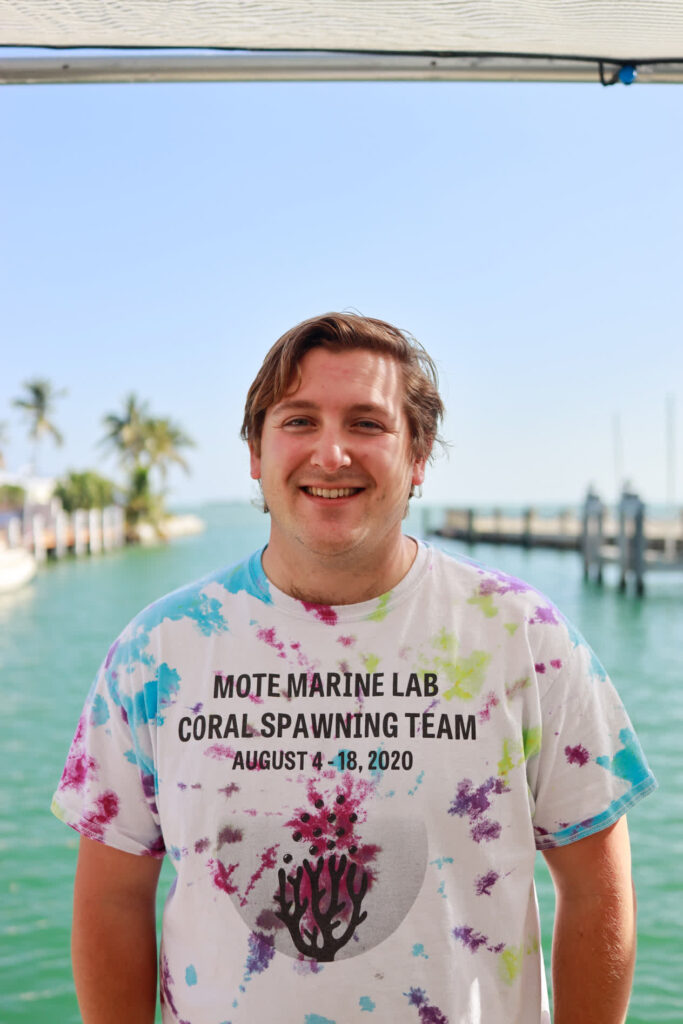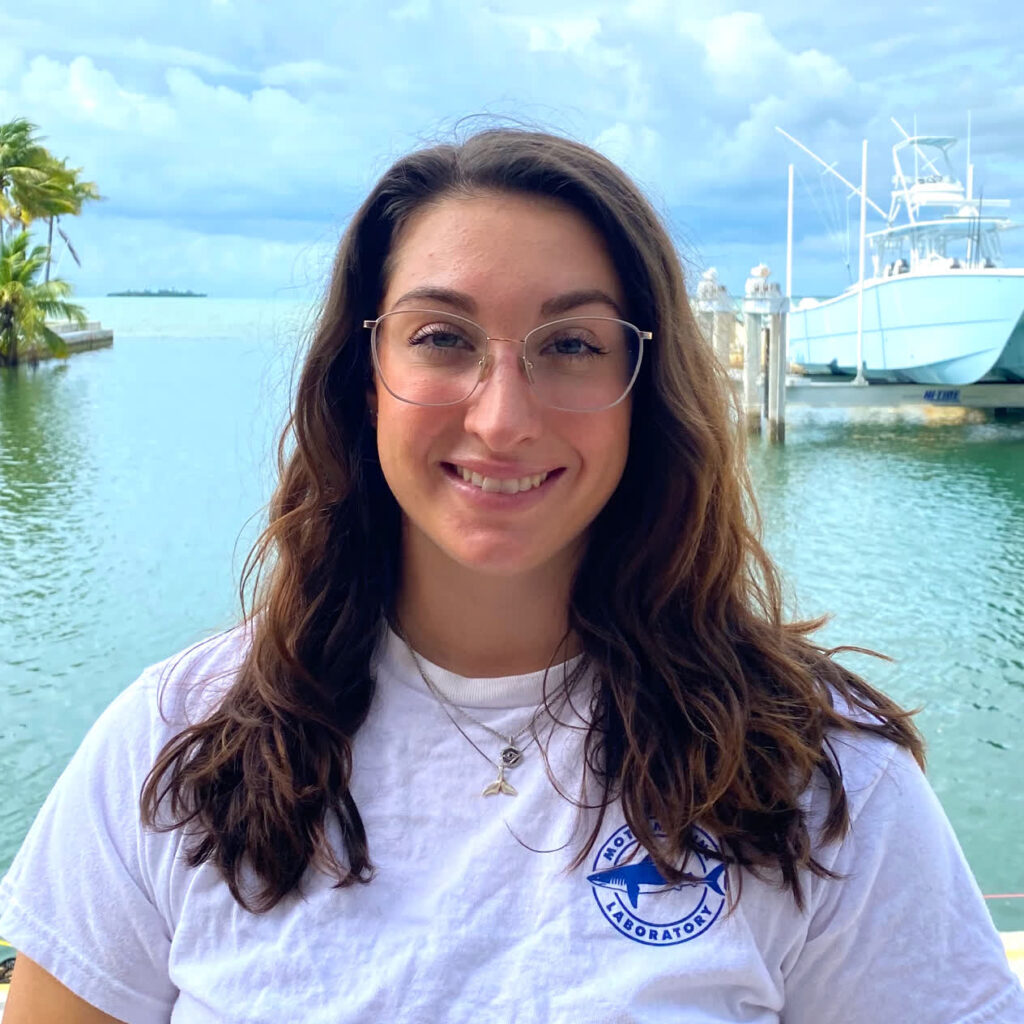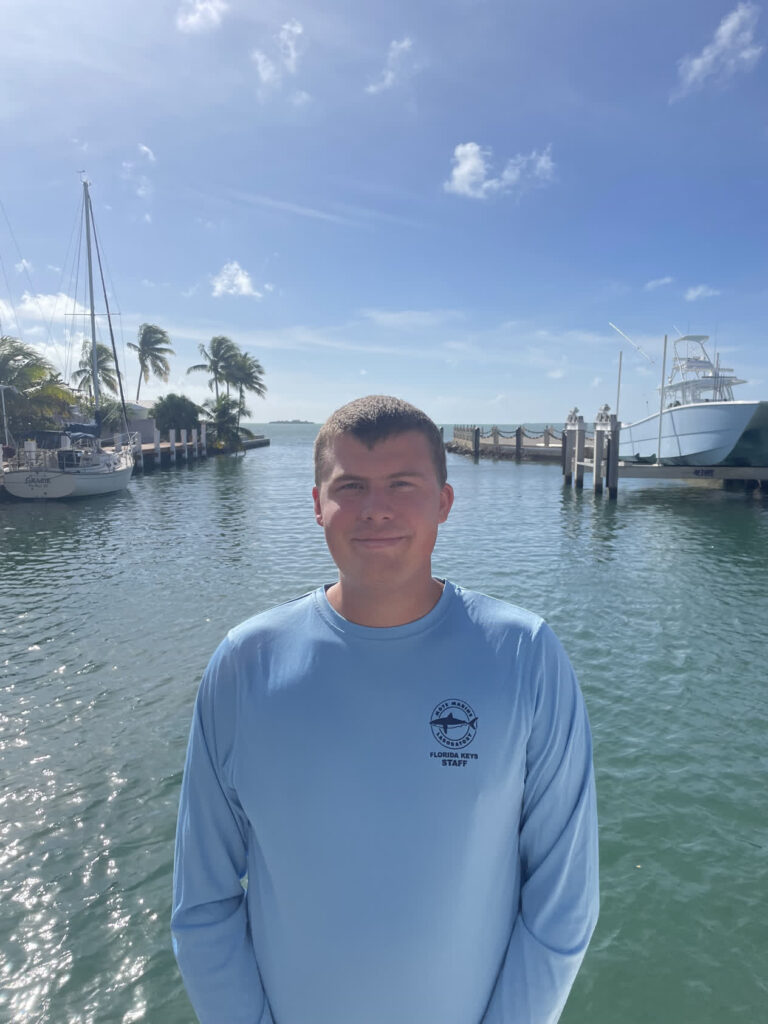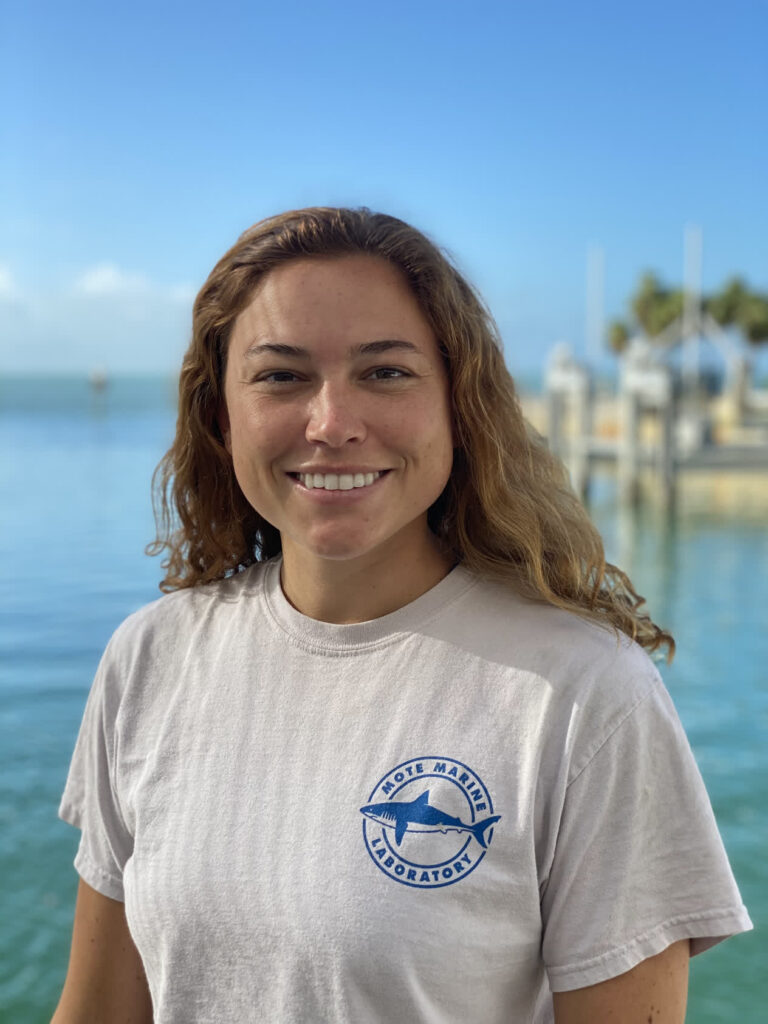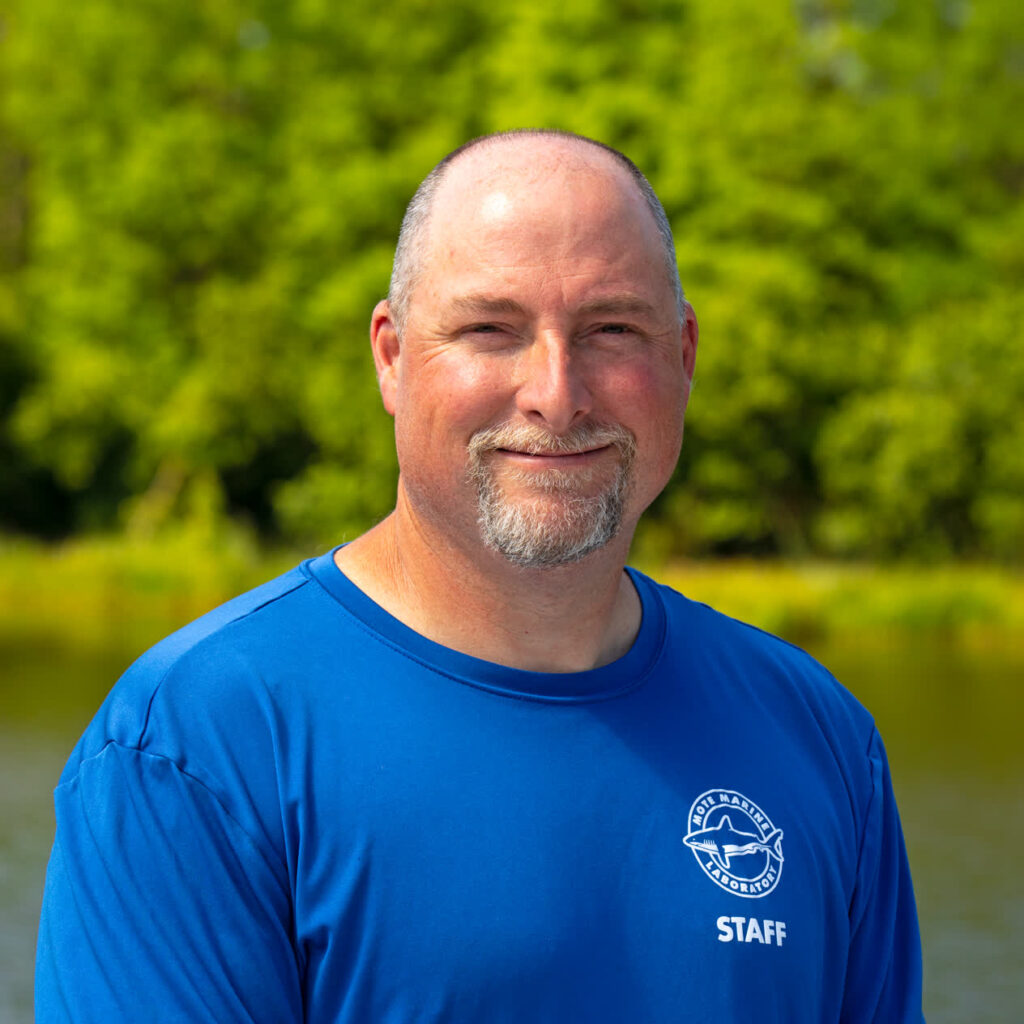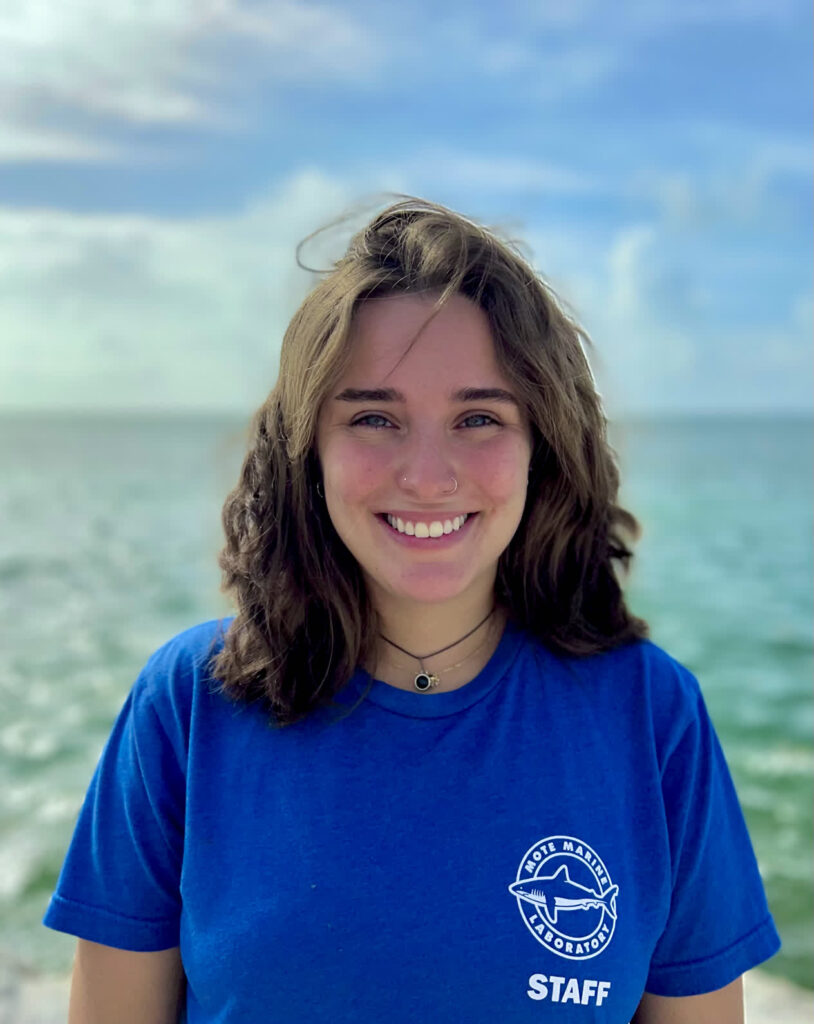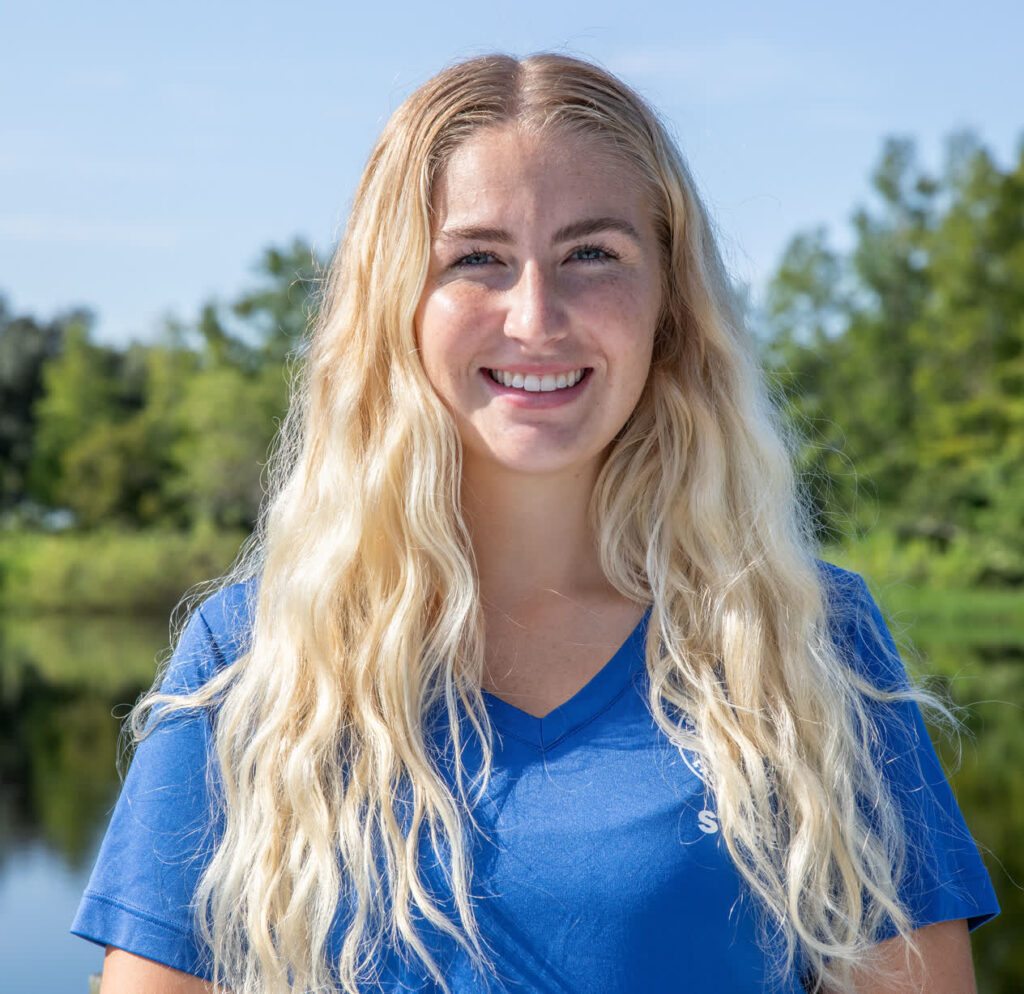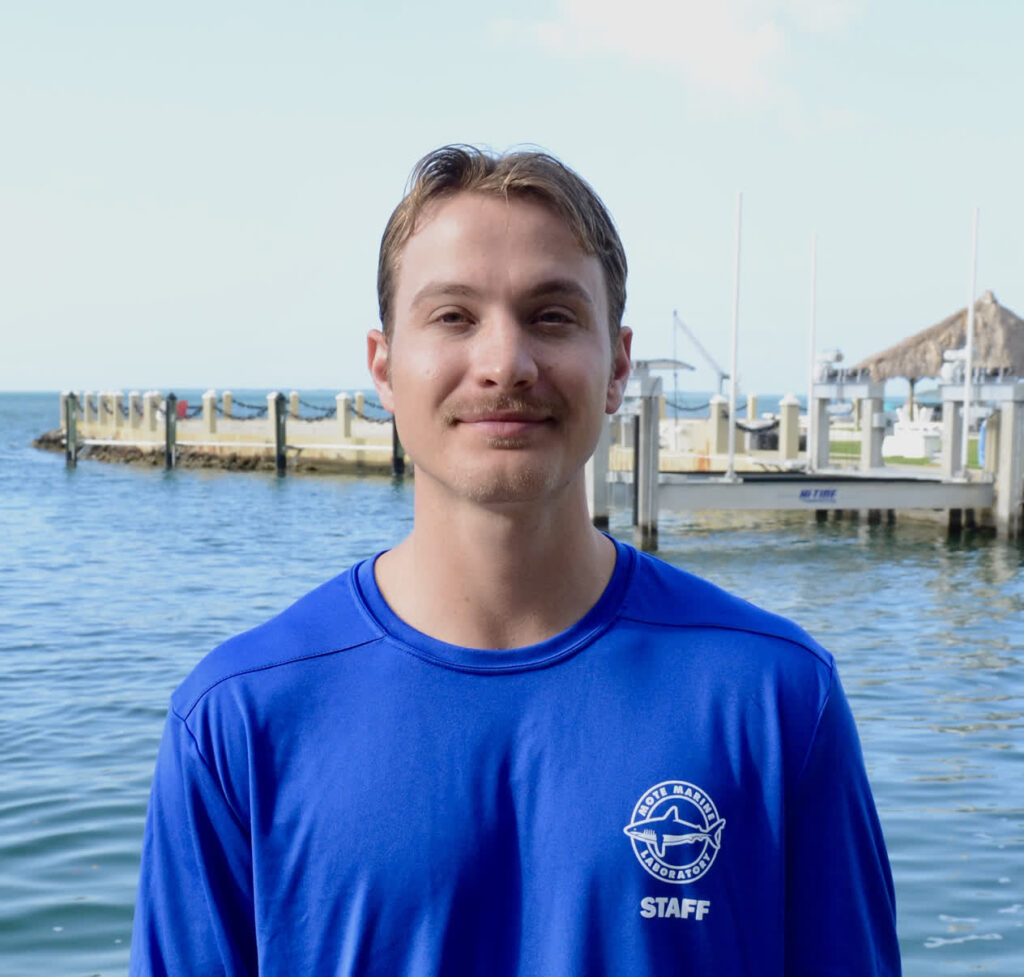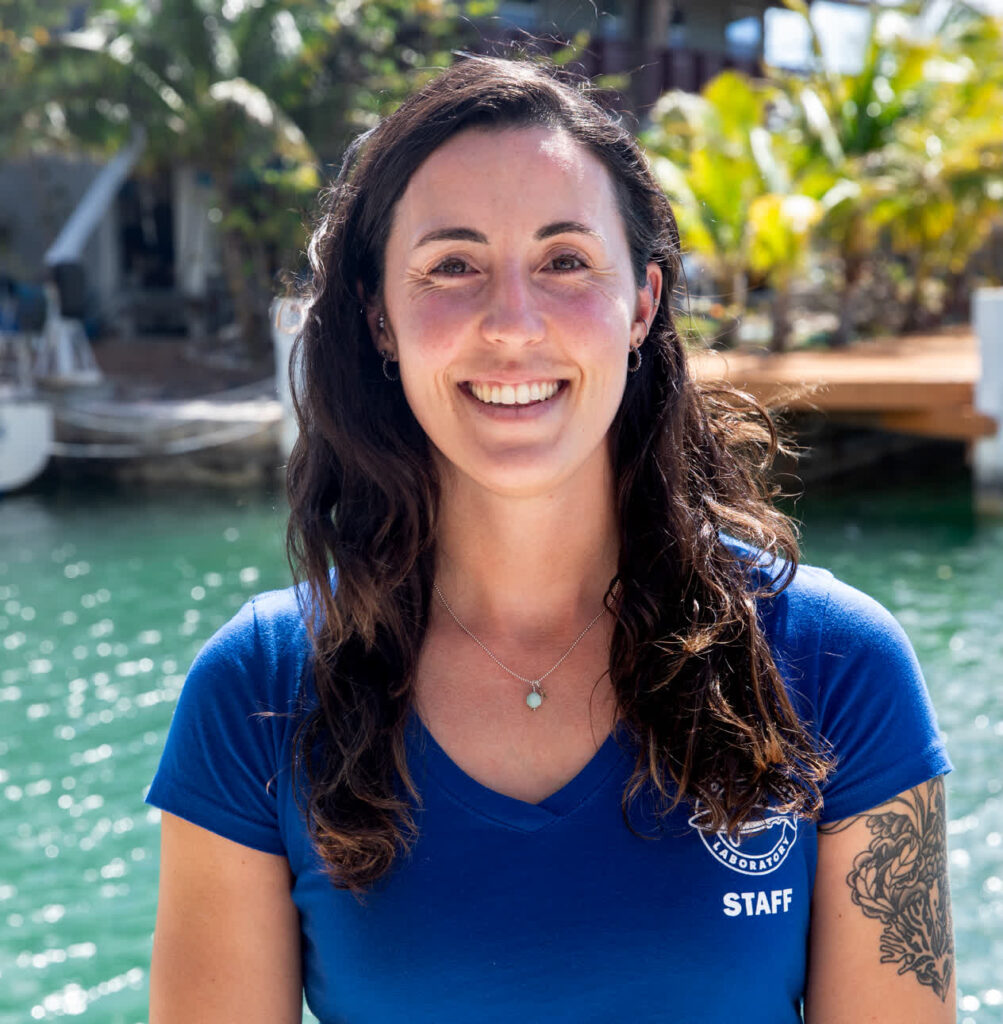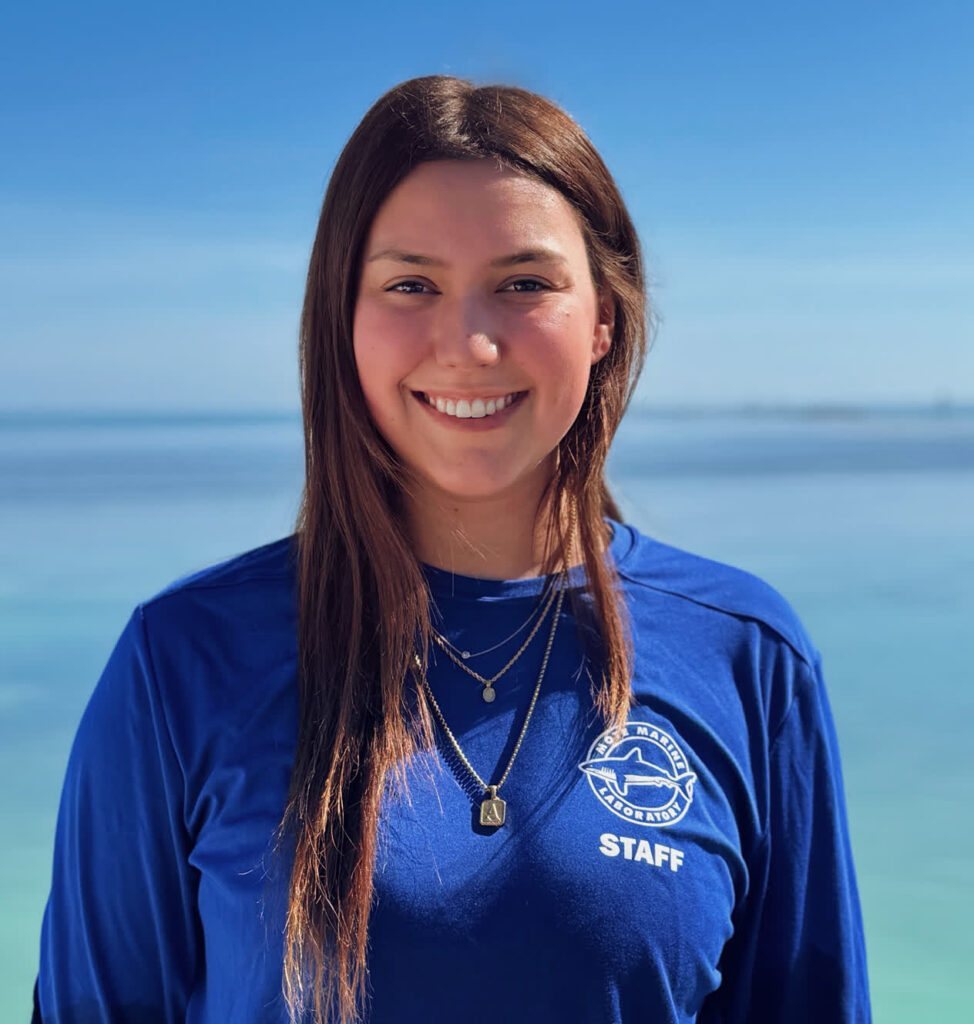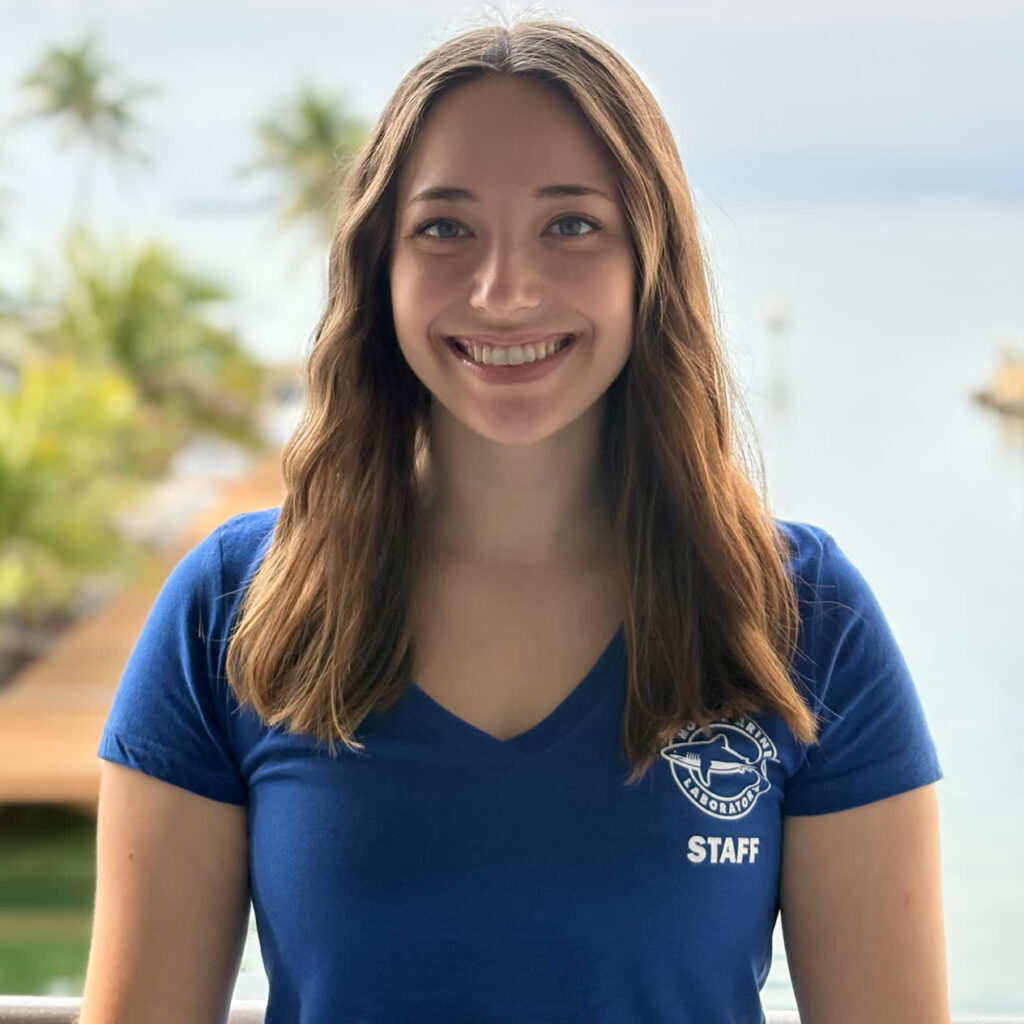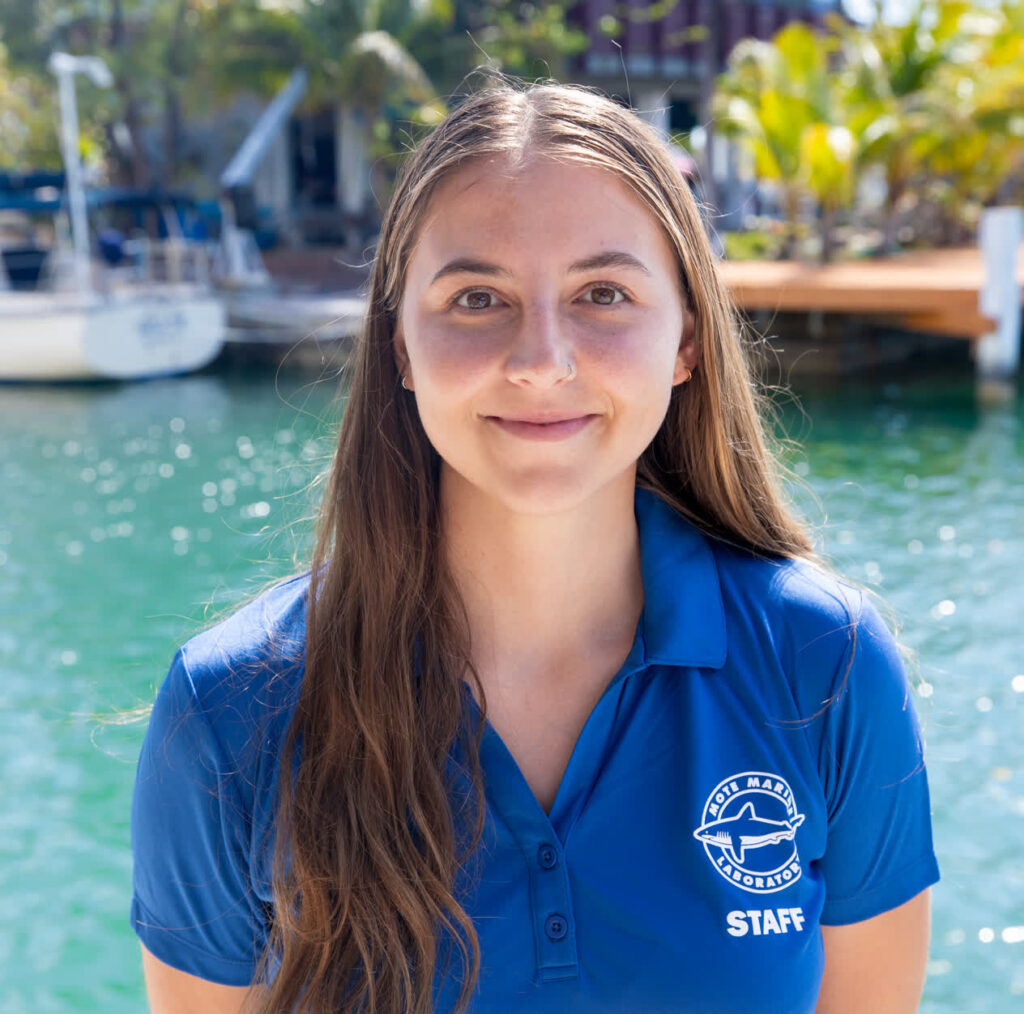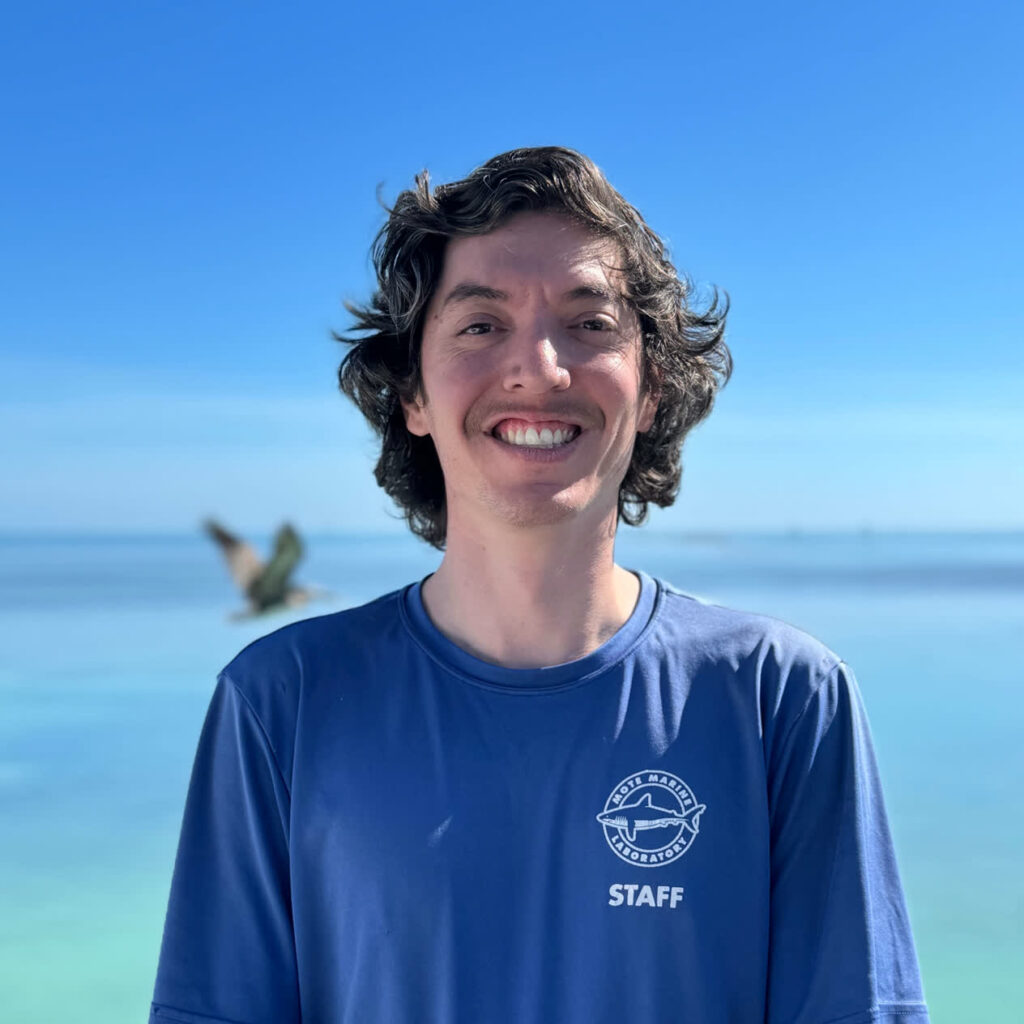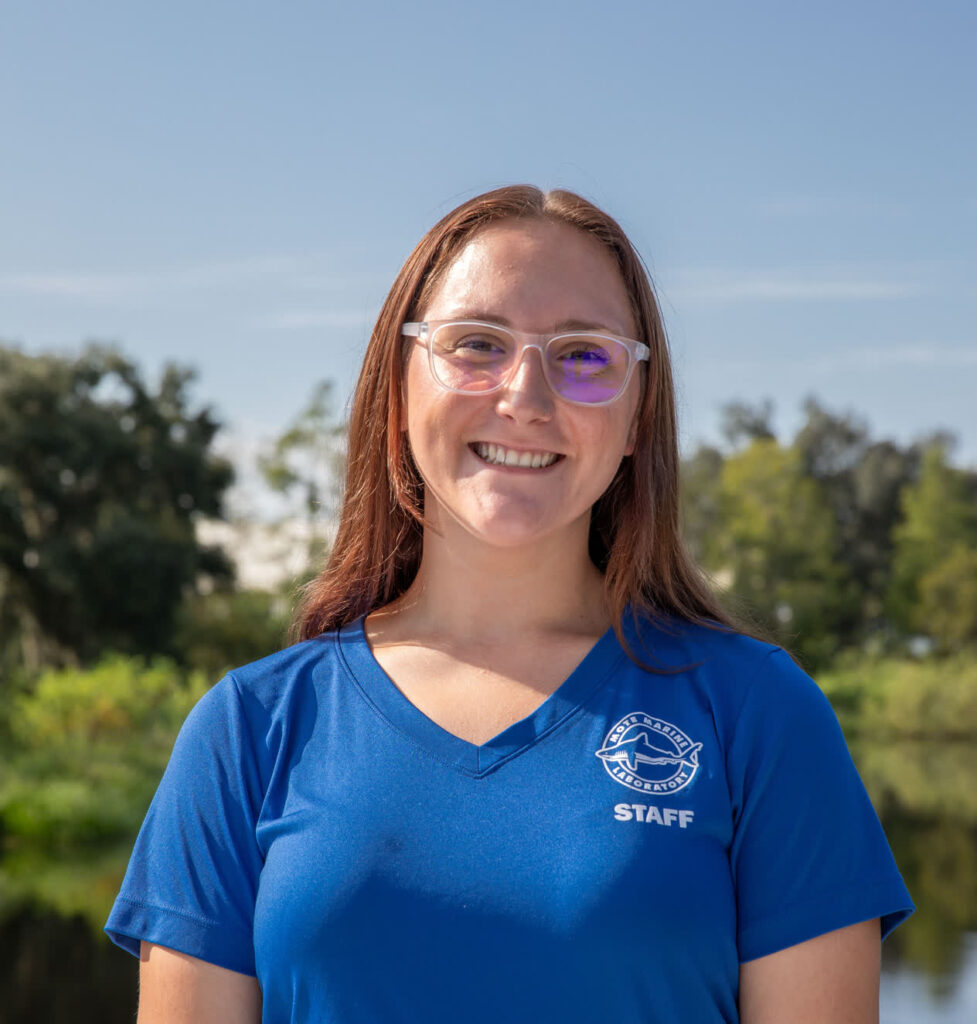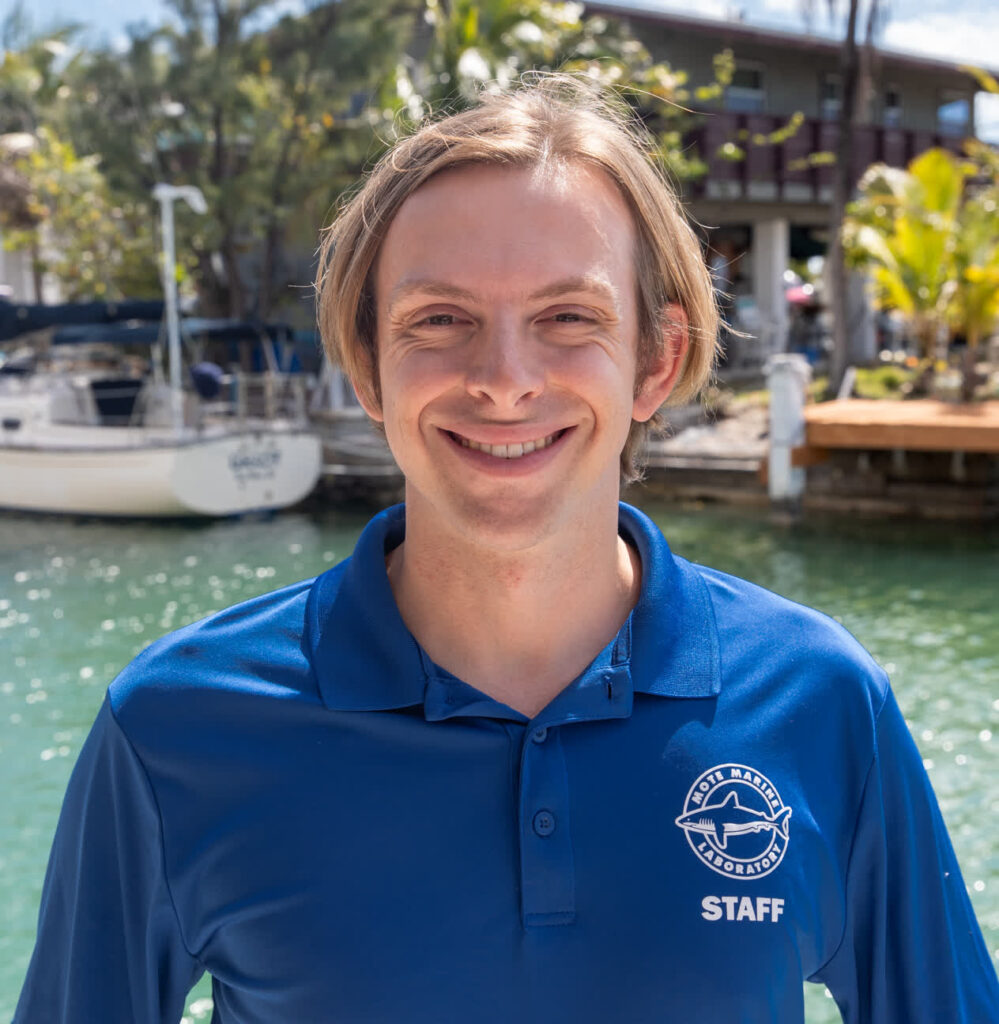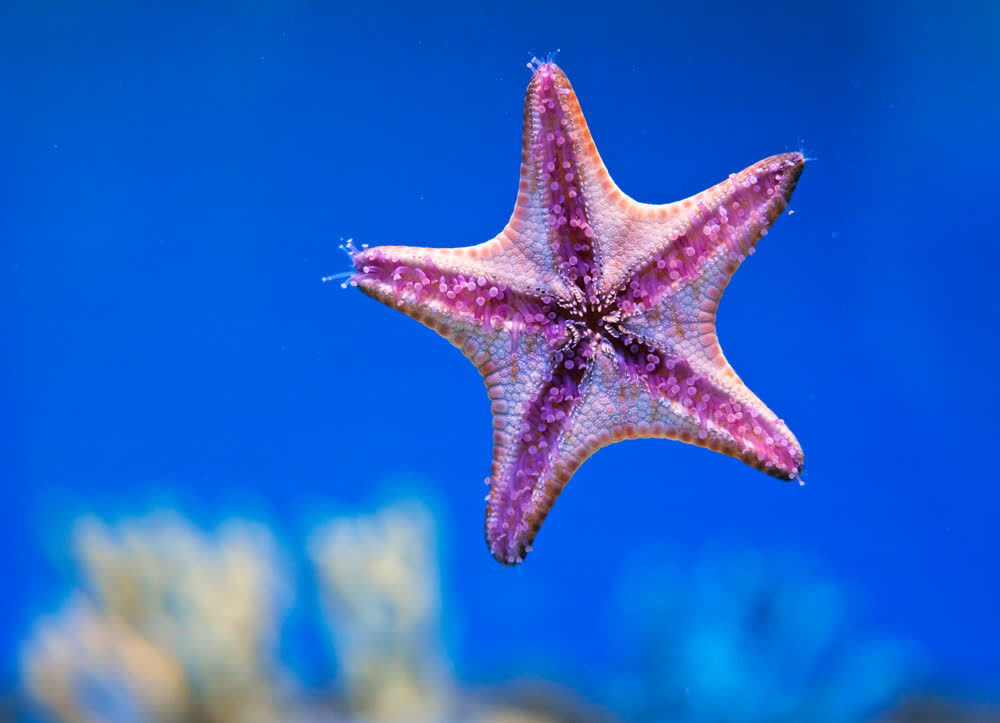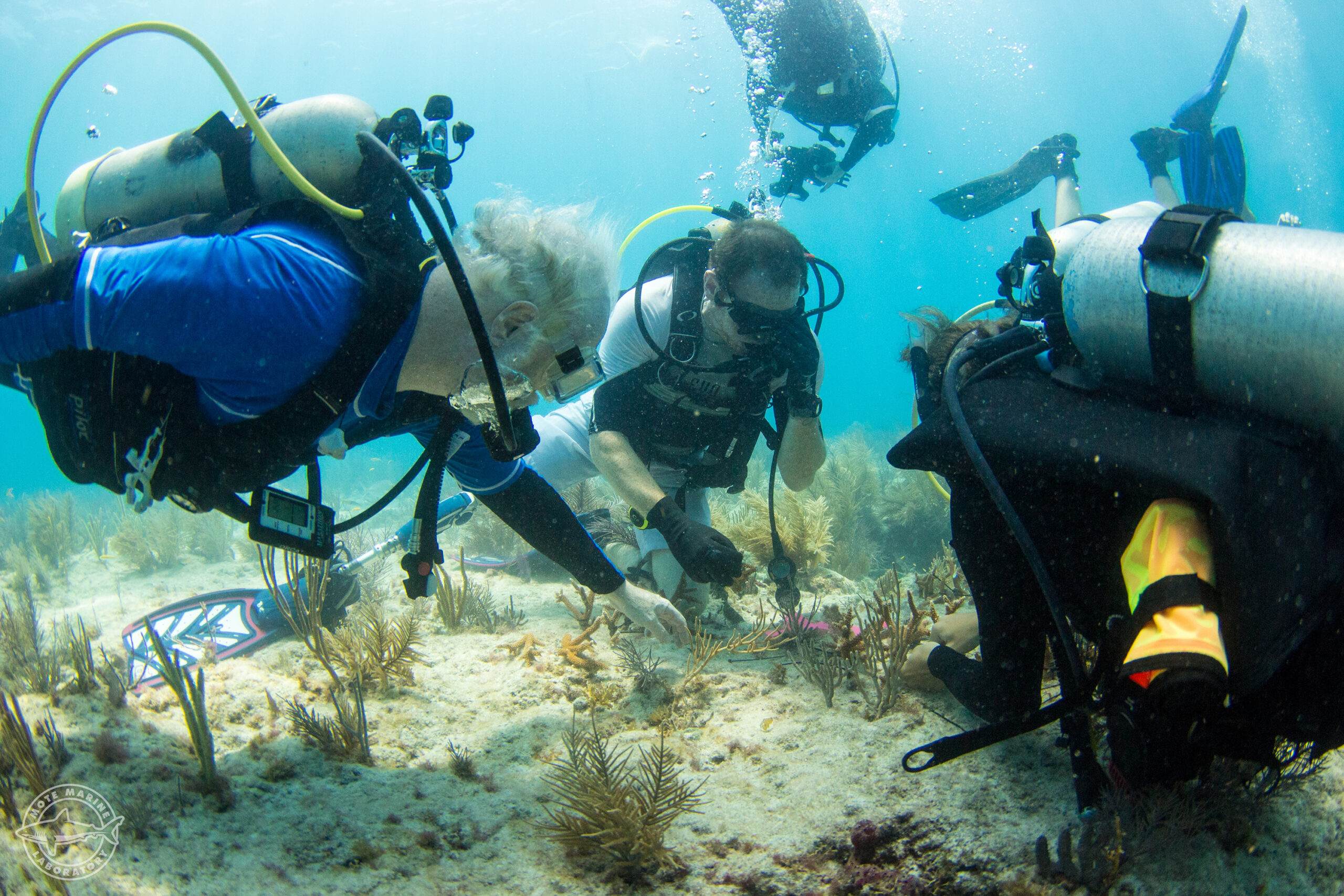Mote Marine Laboratory scientists have restored more than 216,000 corals to Florida’s Coral Reef—an exciting milestone. Starting in 2020, several of our restored corals spawned, engaging in sexual reproduction to produce new generations of corals. Mote’s corals were the first of any massive or mounding species documented to spawn after being restored to Florida or Caribbean waters.
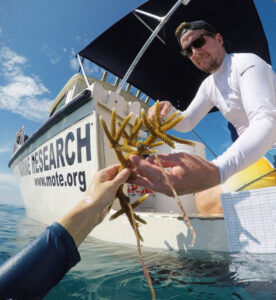 Coral Reefs Need Our Help
Coral Reefs Need Our Help
Coral reefs are vital to people and wildlife around the world. However, they are declining steeply due to climate change—including increasing temperatures and ocean acidification—along with coral disease, pollution, overfishing and other stressors.
Florida’s Coral Reef—which stretches approximately 350 miles from the Dry Tortugas to the St. Lucie Inlet—provides more than $8 billion economic impact, attracting visitors, protecting coastlines from major storms and supporting diverse life including fisheries. However, Florida’s Coral Reef has lost all but 2% of its living coral cover in recent decades and is struggling to survive amid growing environmental pressures. Today, the major disease outbreak known as stony coral tissue loss disease (SCTLD) is one of the most urgent and devastating challenges for brain, maze, boulder, star, pillar and other slow-growing corals that form the very foundations of Florida’s Coral Reef.
Science-based Restoration
Mote Marine Laboratory’s Coral Reef Restoration Research Program develops and applies science-based strategies with the goal of restoring depleted coral reefs in our lifetime. Specifically, Mote researchers are working to optimize restoration using diverse coral genotypes (genetic varieties), prioritizing native genetic varieties that can resist SCTLD and other stressors such as increased water temperatures and ocean acidification.
These critical efforts are based at Mote’s Elizabeth Moore International Center for Coral Reef Research & Restoration (IC2R3) on Summerland Key, Florida. Mote scientists cultivate diverse corals for restoration and research in IC2R3’s land-based coral nurseries and in underwater nurseries where corals are grown on PVC “trees.”
Celebrating Successes, Learning from Challenges
In summer 2020, Mote scientists documented that our restored massive corals (mountainous star coral, Orbicella faveolata) had spawned, engaging in sexual reproduction to produce new generations of corals, and our restored branching corals (staghorn coral, Acropora cervicornis) were sexually mature and capable of spawning as well. These discoveries represent breakthroughs in our efforts to restore coral reefs to self-sustaining life.
Our team has also strived to learn from challenges such as the record high temperatures along Florida’s Coral Reef in summer 2023. Mote scientists are applying knowledge from this event to improve our science-based restoration techniques.
 Always Growing
Always Growing
- Mote’s land-based nurseries are growing about 34,400 coral fragments of 17 species and 1,120 unique genotypes in our land-based coral nurseries. These include both branching and massive corals.
- Mote’s underwater nurseries are growing about 21,400 coral fragments of six coral species (both branching and massive) comprising 190 unique genotypes. Our genotypes represent wild, native corals from across Florida’s Coral Reef, and our staghorn and elkhorn coral genotypes include “sexual recruits”—offspring from our strategic breeding of native parent corals to supply fresh genetics to our restored populations.
Science for Reef Resilience
Grounded in the best available science, Mote researchers carry out every step essential for resilient coral reef restoration. Our uniquely comprehensive approach includes: coral sexual reproduction (spawning, fertilization, and settlement); growing corals from microscopic larvae to adult colonies; producing more colonies through fragmenting corals asexually; testing coral genetic varieties for resilience to disease, climate change and related stressors; planting corals onto damaged reefs; and raising corals to maturity to start the process again.
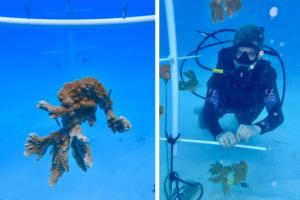
Mote scientists work to screen corals for resistance or resilience to known stressors attributed to climate change and disease, allowing us to identify and incorporate resilient coral genotypes into our restored populations. We also conduct a myriad of other scientific studies that inform our restoration practices. From 2015-2020 alone, Mote’s coral-focused scientists have authored or co-authored 43 peer-reviewed scientific papers on multiple aspects of coral biology, restoration, health and disease, climate change impacts and more.
To promote health and survival, especially in the face of environmental change and stress, we maintain genetic diversity within our restored coral populations through controlled and strategic breeding of native corals. Genetic diversity, powered by sex, is a safety net that promotes population resilience by providing a buffer against environmental change and the flexibility to adapt. However, many populations of foundational coral species are experiencing reproductive failure in the wild, which has serious implications for a population’s ability to persist over the long-term and recover post-disturbance. Sexual reproduction provides the next generation of genetically diverse coral offspring that can replenish depleted adult populations and promote population recovery after, for example, a bleaching event or disease outbreak. This is why incorporating assisted coral sexual reproduction into active coral reef restoration strategies is important.
About 80% of the coral genotypes in Mote’s care were produced by Mote scientists through assisted sexual reproduction events. (Read stories about our sexual reproduction efforts with threatened native species: elkhornand staghorn corals.)
Science-based reef restoration is central to Mote’s Florida Keys Coral Disease Response & Restoration Initiative, which aims to help coral reefs recover from SCTLD and other serious challenges. Mote is co-leading a Restoration Trials Team within the multi-partner response to the disease outbreak. (Read about the important role of restoration for the future of Florida’s reefs in this 2019 article, and read about Mote’s peer-reviewed research on SCTLD in this 2020 article.)
Mote’s coral reef restoration efforts are made possible through collaboration with partners such as NOAA’s Florida Keys National Marine Sanctuary, Florida Department of Environmental Protection (DEP), Florida Fish and Wildlife Conservation Commission (FWC), The Nature Conservancy (TNC) and others. Mote’s research and restoration activities described above were conducted under permits from NOAA’s Florida Keys National Marine Sanctuary.
Program Details
- Mote is working with NOAA’s Florida Keys National Marine Sanctuary and the Nature Conservancy to advance culture methods for hard corals at Mote’s Elizabeth Moore International Center for Coral Reef Research & Restoration in the Florida Keys. Our research is focused on developing culture or propagation methods for more than 20 species of hard corals under controlled environmental conditions for reef restoration research. Research efforts have produced thousands of coral colonies for transplanting back to the reef.
- In 2016, Mote launched a coral restoration project at Fort Zachary Taylor Historic State Park (Key West) with partners from Florida Park Service and NOAA’s Florida Keys National Marine Sanctuary, with funding support from the Monroe County Tourist Development Council. The partners planted 5,500 fragments of brain, mountainous star and great star corals during summer 2016 in park waters, and they developed an educational kiosk to help park visitors learn about reefs.
- The Combat Wounded Veteran Challenge and SCUBAnauts International join Mote each summer to plant corals in a special restoration area of NOAA’s Florida Keys National Marine Sanctuary.
- In September 2016, Mote and The Nature Conservancy launched a coral conservation initiative that will enable coral restoration at unprecedented scales throughout the Caribbean and the Florida Keys. The collaboration officially began with the signing of a one-year memorandum of understanding (MOU), enabling the first steps in a proposed 15-year initiative of joint coral reef restoration and conservation efforts.
Mote’s campus in the Florida Keys, The Elizabeth Moore International Center for Coral Reef Research & Restoration, hosts and supports the work of approximately 150 non-resident scientists from over 60 different U.S. and international institutions, while playing a key role in studies worldwide.
Our coral restoration and related research has advanced with the help of many vital collaborators. Here is a non-exhaustive list of some insitutions that have recently collaborated with our Coral Reef Restoration Program.
- NOAA’s Florida Keys National Marine Sanctuary
- The Nature Conservancy
- Florida Park Service
- Florida Keys Community College
- University of Guam
- Hawaii’s Division of Aquatic Resources
- Hawaii Institute of Marine Biology, Kaneohe
- King Abdulaziz University
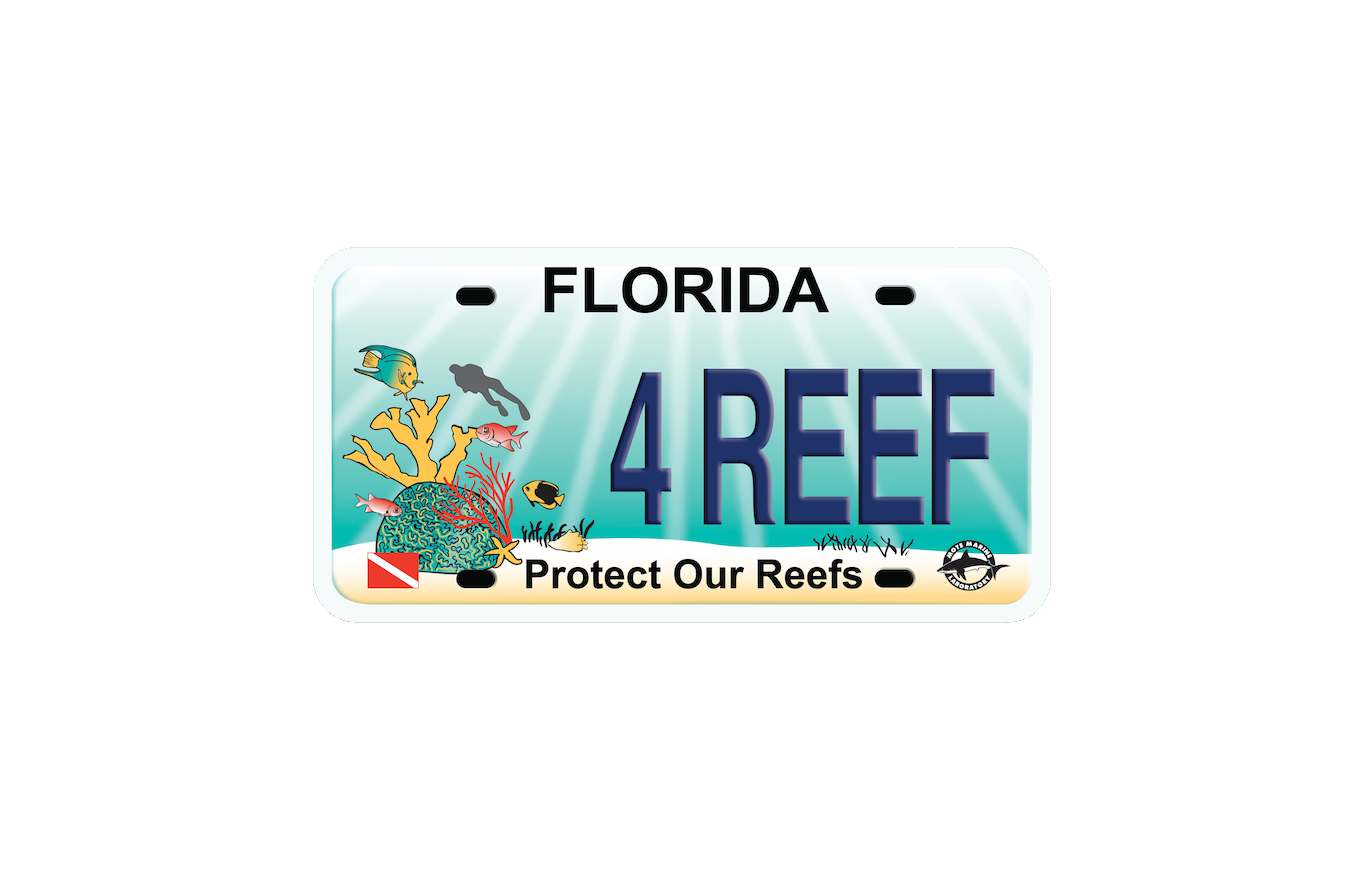
Many of our research projects are supported by the Protect Our Reefs License Plate. Click below to learn more!
Get the Protect Our Reefs License Plate
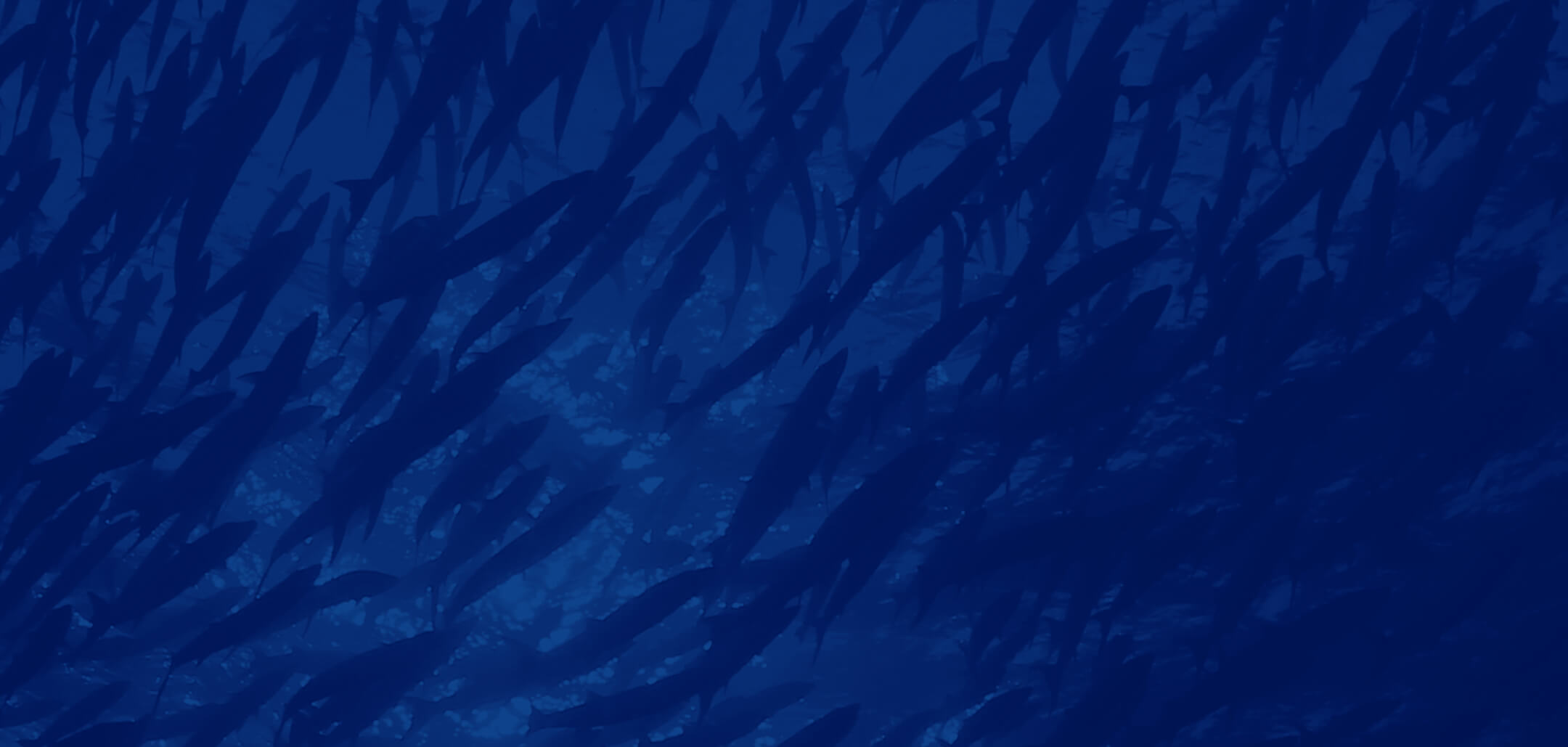

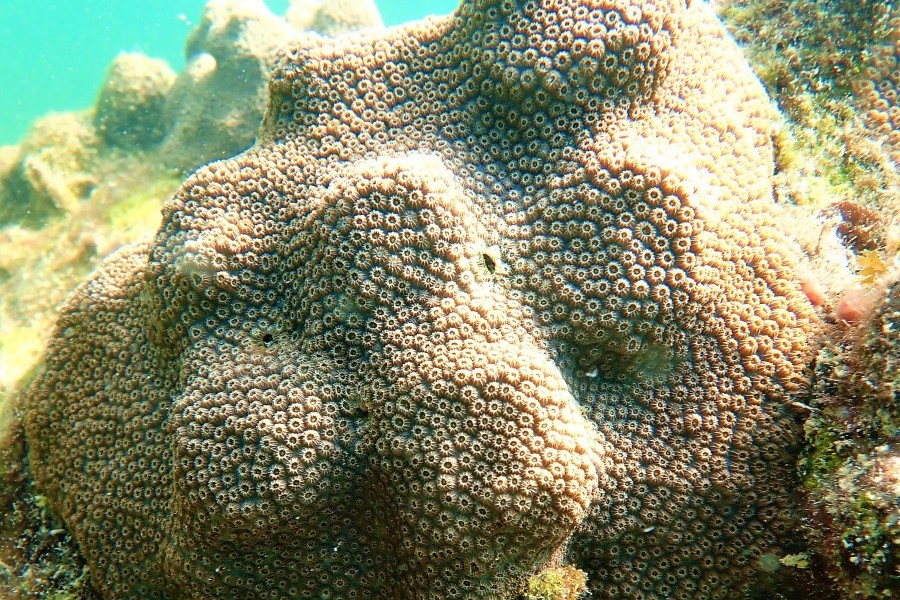
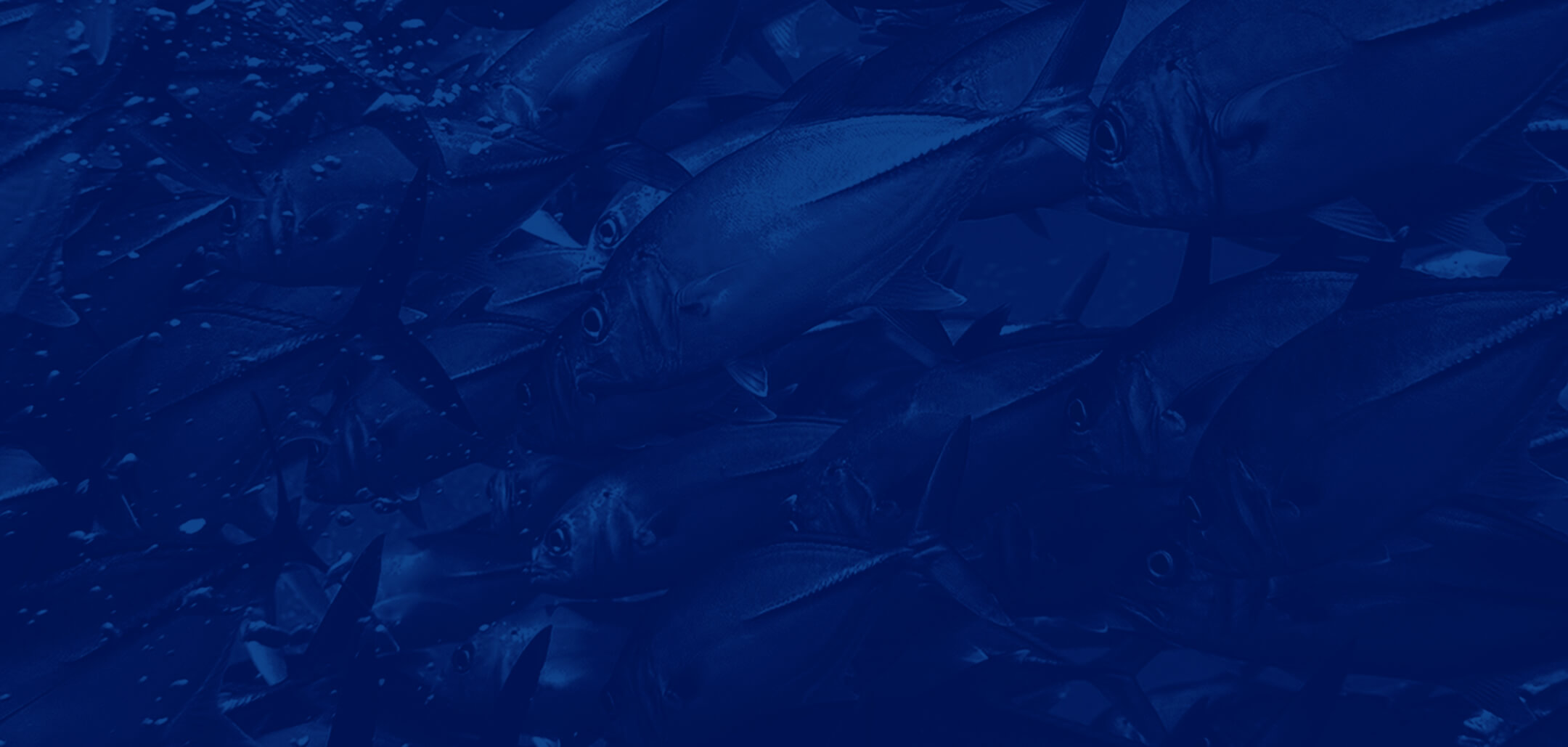
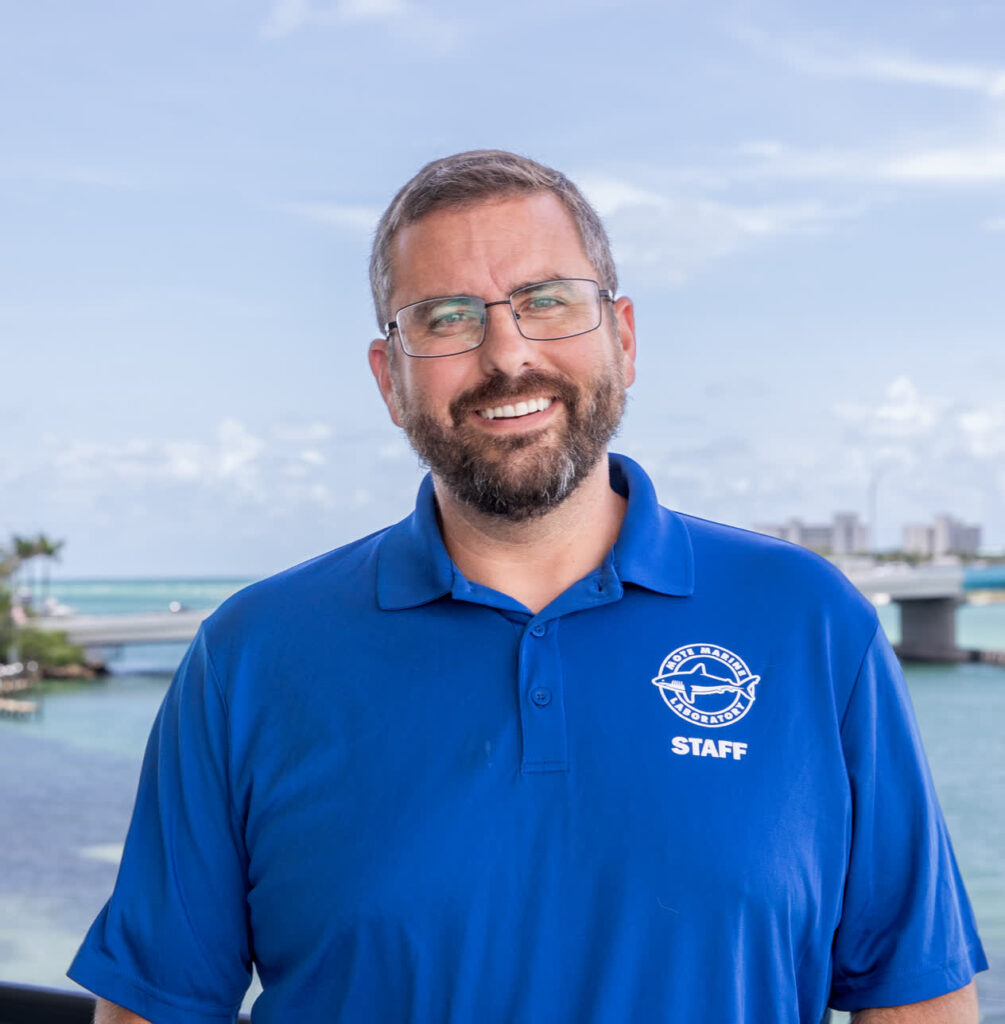
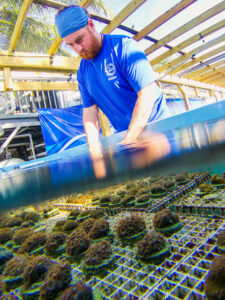 Always Growing
Always Growing